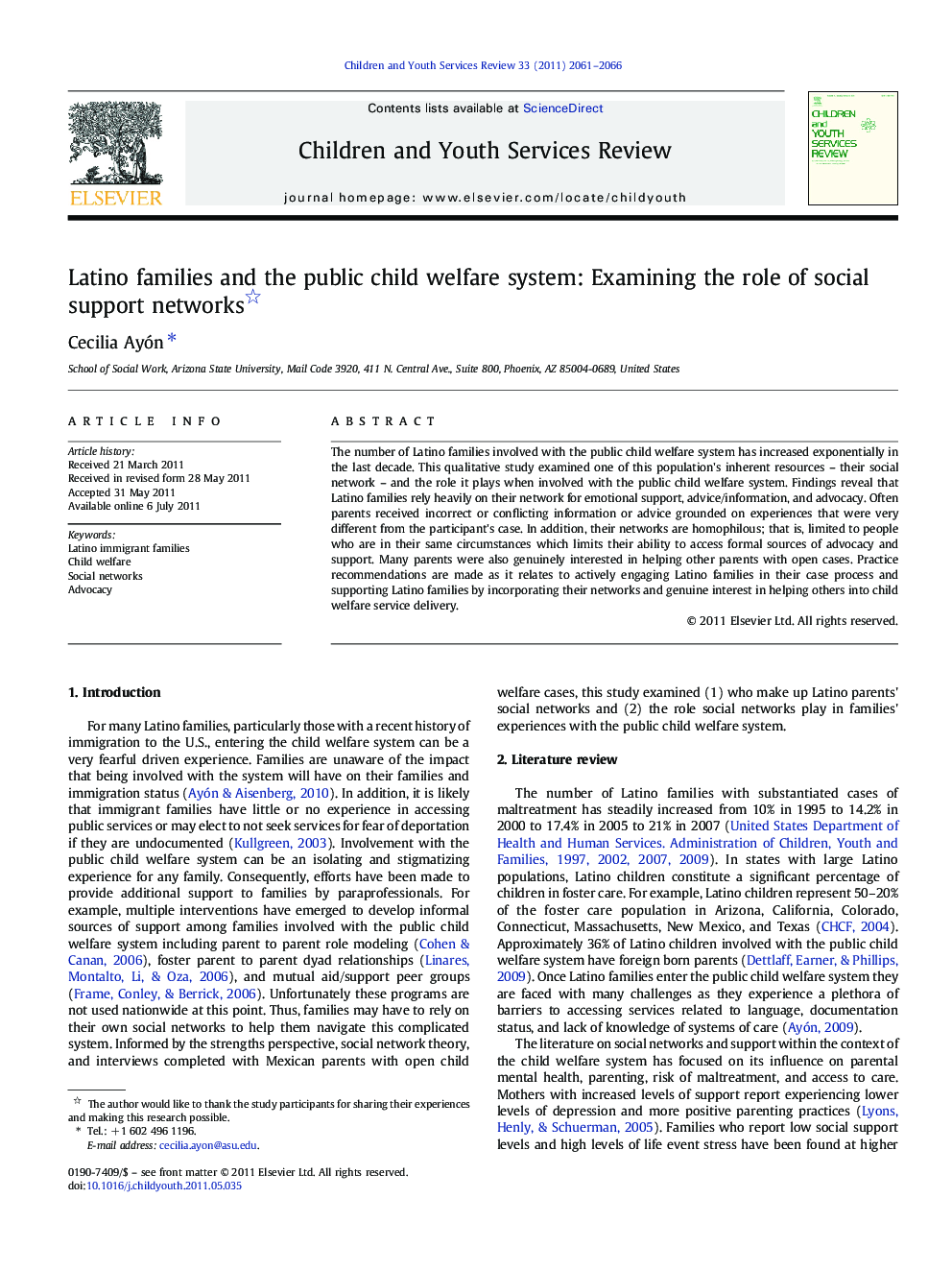| Article ID | Journal | Published Year | Pages | File Type |
|---|---|---|---|---|
| 347235 | Children and Youth Services Review | 2011 | 6 Pages |
The number of Latino families involved with the public child welfare system has increased exponentially in the last decade. This qualitative study examined one of this population's inherent resources – their social network – and the role it plays when involved with the public child welfare system. Findings reveal that Latino families rely heavily on their network for emotional support, advice/information, and advocacy. Often parents received incorrect or conflicting information or advice grounded on experiences that were very different from the participant's case. In addition, their networks are homophilous; that is, limited to people who are in their same circumstances which limits their ability to access formal sources of advocacy and support. Many parents were also genuinely interested in helping other parents with open cases. Practice recommendations are made as it relates to actively engaging Latino families in their case process and supporting Latino families by incorporating their networks and genuine interest in helping others into child welfare service delivery.
► Latino families rely heavily on their social network for emotional support, advice/information, and advocacy. ► Parents often receive incorrect or conflicting information or advice grounded on experiences of other parents. ► Networks are homophilous which limit parents' abilities to access formal sources of advocacy and support.
